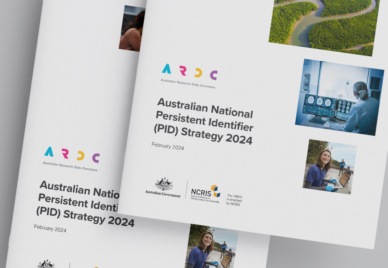Data Governance

What Is Data Governance?
There are various aspects to data governance, but at its core it is about how decisions are made about data and who is responsible for the data.
Managing data well involves making a lot of decisions. These might include:
- who can access the data
- what the data can be used for
- whether the data can be shared outside of the project or organisation
- where the data can be stored
- how long the data can be kept for.
Making appropriate decisions about data is important. It ensures that you are meeting your responsibilities and managing any risks associated with your data. Good data governance gives you clarity about how these decisions are made.
Here we will talk about data governance for an organisation, but the same concepts of data governance also apply in other contexts – you may require data governance arrangements at the level of a research project or, conversely, a multi-organisational partnership.
The Core of Data Governance
Central to data governance are arrangements related to who:
- Who is responsible for the data?
- Who has the authority to make decisions about the data?
Data governance arrangements also cover how decisions about data should be made. These arrangements can be at different levels and include:
- high-level principles
- policies
- detailed procedures and processes.
Different organisations will have different ways of making these arrangements and may record this information in different ways. The important thing is that the answers to these questions of who and how are clearly set out and understood.
Supporting Data Governance
Good decisions about data rely on good information about that data. Systems that enable you to keep accurate records about your data make it easier to work out whose responsibility the data falls under and what policies and procedures apply to that data. Maintaining good metadata – data about the data – and other records such as data management plans is therefore important for supporting data governance.
Effective data governance relies on everyone knowing what the rules are and how to apply them. Clear documentation, training and guidance about your governance arrangements will help support data governance for your organisation.
It is also important to keep track of how your data governance arrangements are working. This might involve periodic reviews of data governance arrangements or processes for what happens when there is a problem or a complaint. Depending on your context, you might also need systems in place to check that data governance rules are being followed and that the decisions are being carried out properly.

Benefits of Data Governance
Good data governance will help your organisation handle its data appropriately. This has the benefits of:
- better compliance with regulatory and ethical requirements
- better management of the risk associated with your data
- greater trust from participants, project partners and other stakeholders
Good data governance also helps streamline decision making because it is clear who has the authority to make the decision and what rules they need to follow. This can have benefits such as:
- more efficient, timely decision-making
- faster, more straightforward access to data
- control over organisational costs.
Considerations
Different contexts will require different data governance arrangements. Factors that will influence the way an organisation sets up its data governance arrangements include:
- the size of the organisation and the amount of data it manages
- the kind of data that is being managed and where it comes from
- the risks associated with the data
- any regulations that need to be complied with around the data
- any external groups or individuals who need to be involved in decision-making processes
- existing standards and principles for data governance (for instance, the CARE Principles for Indigenous data management).

Data Governance Resources by the ARDC
Use these resources by the ARDC to make sure your data is well governed:
Related ARDC Resources
We also have resources on topics related to data governance:
Further Support
For further support or to ask any questions related to data governance, please contact us.
There are many other organisations and web resources that can help you understand the requirements of data governance, including the:
- NSW Government Data Governance Toolkit
- Office of the National Data Commissioner (ONDC)
- Indigenous Data Network
- Australian Digital Observatory (ADO)’s guide to data governance for human-related dynamic digital data
- Australian Institute of Health and Welfare (AIHW)’s Data Governance Framework
- University of Technology Sydney (UTS)’s Data Governance Policy.
If you work at a university, you may also find materials related to data governance at your research office.

















